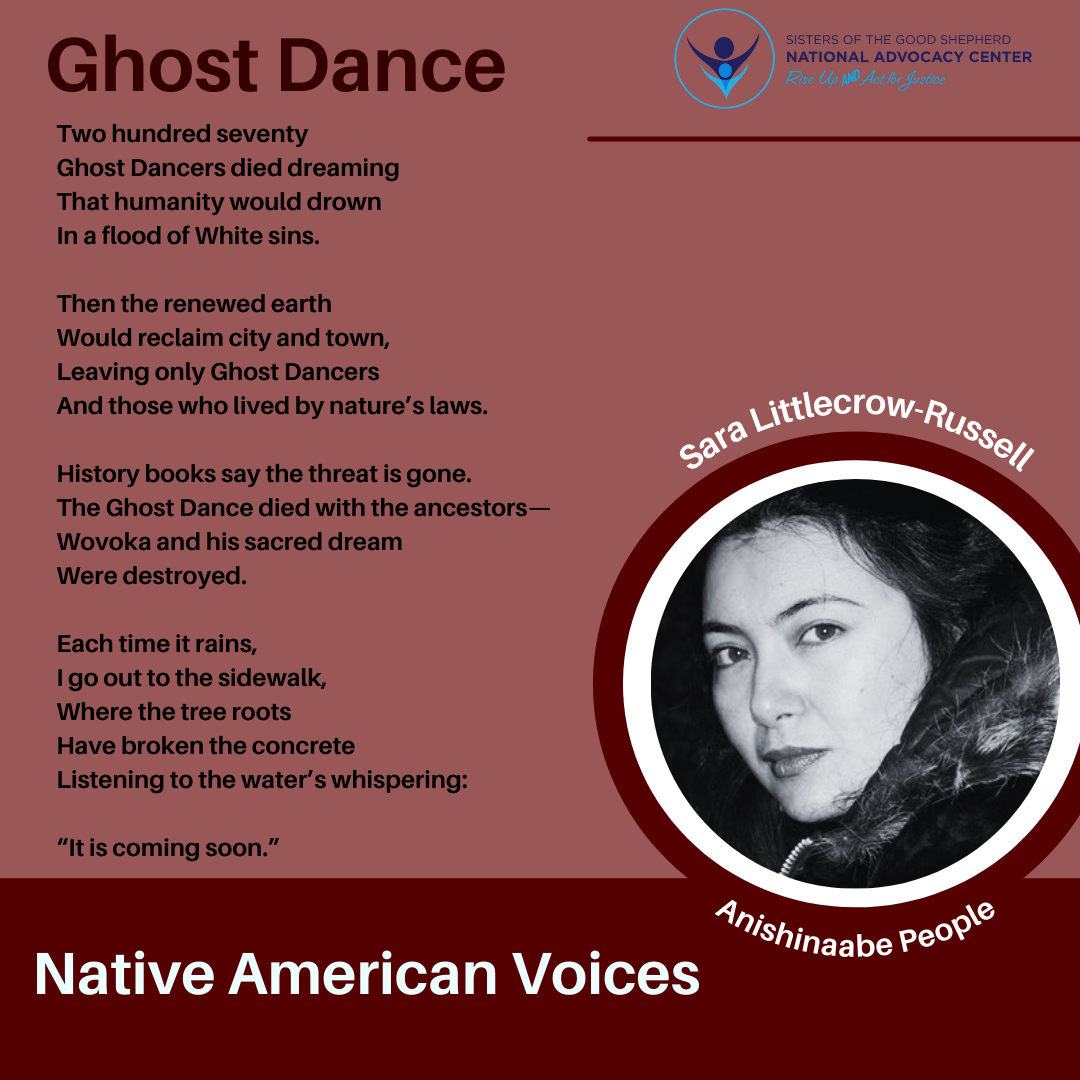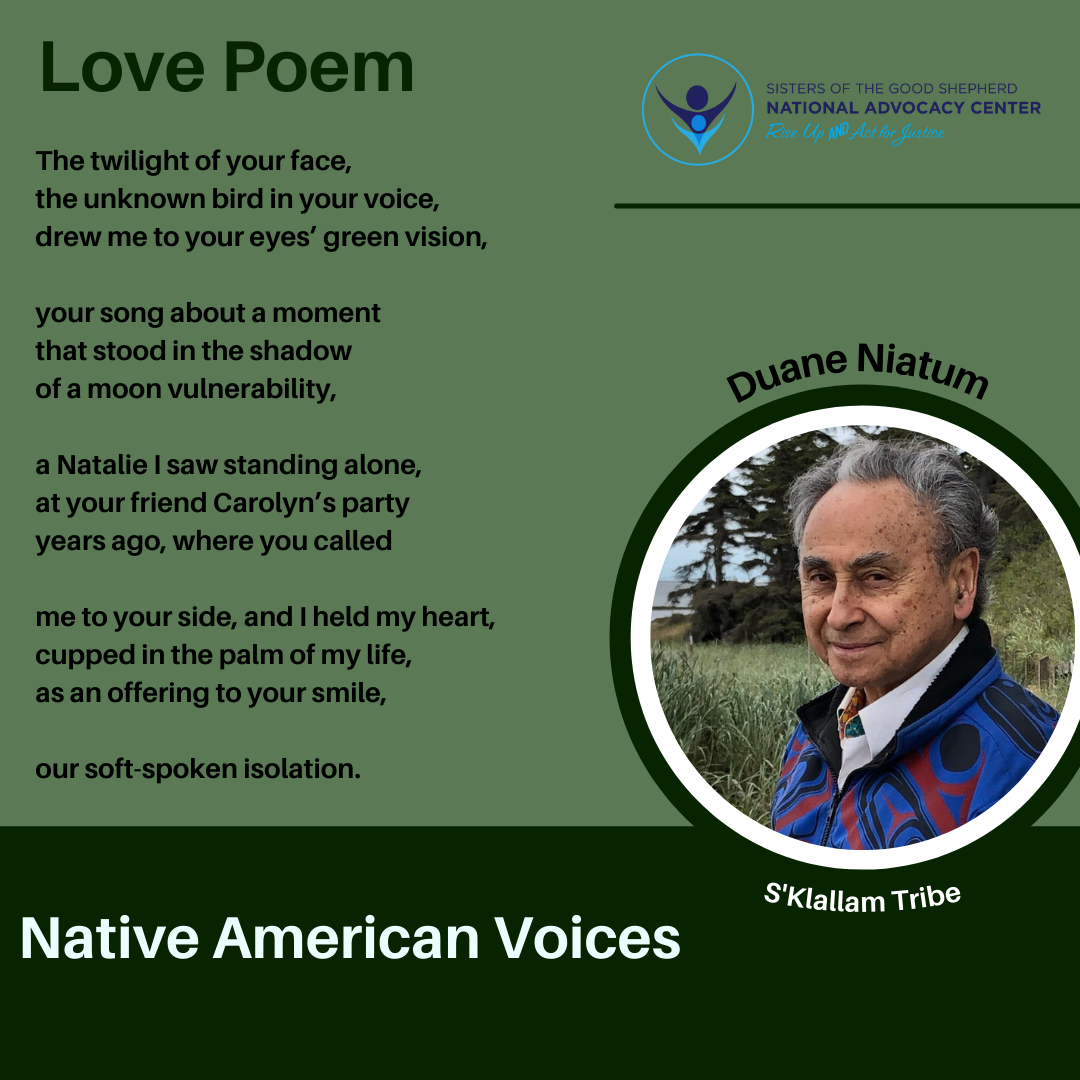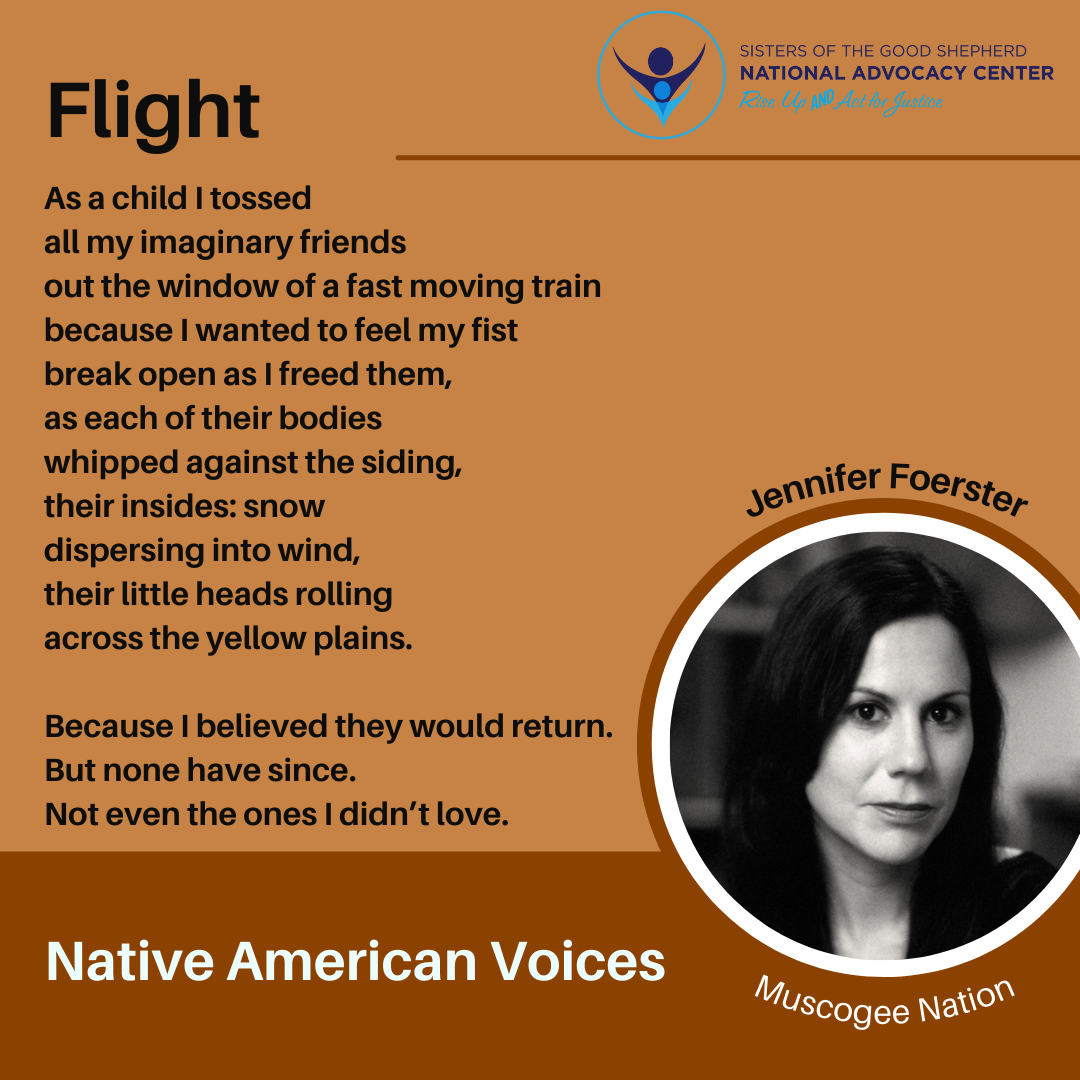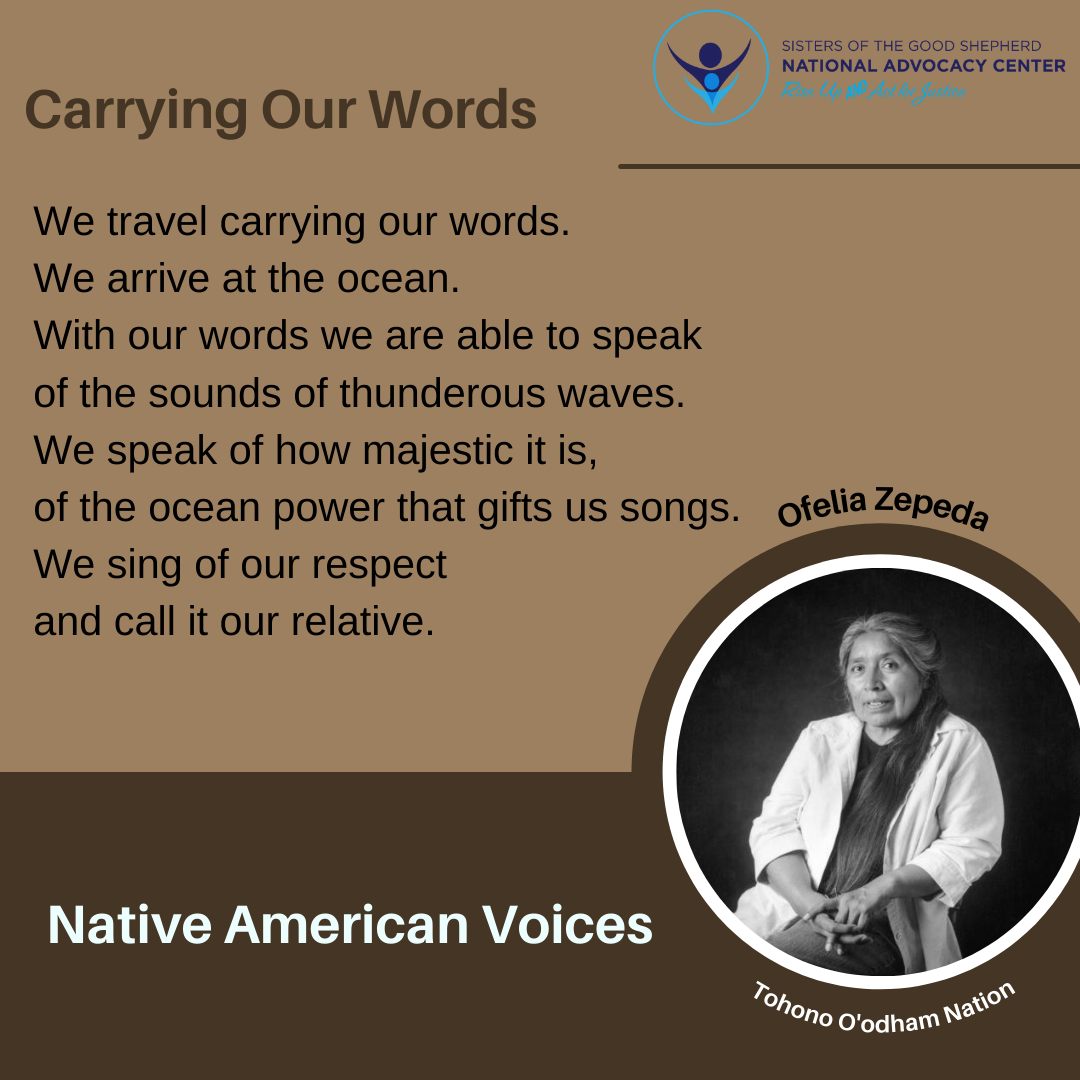Native American Heritage Month -
|
This past #NativeAmericanHeritageMonth 2021, we highlighted the work of Native American voices in poetry.
#NativeAmericanHeritageMonth #NativeAmericanVoices |
|
Sara Littlecrow-Russell is of both Anishinaabeg and Han-Naxi Métis heritage. In addition to being a poet, Littlecrow-Russell is also a lawyer and a professional mediator. In her poetry, Littlecrow-Russell aims to tell stories while commenting on and questioning Native American stereotypes.
The Anishinaabe people, from whom Littlecrow-Russell is descended, are from the areas surrounding the Great Lakes. Beginning in the 19th century, many treaties were signed with colonizing governments, and the Anishinaabe ceded much of their ancestral lands to these foreign governments. Many colonial practices worked to destroy the Anishinaabe culture, establishing residential schools and banning traditional cultural practices. |
Duante Niatum was born in Seattle in 1938, a member of the S’Klallam tribe of Washington’s Olympic Peninsula. In his poetry, Niatum reflects on the landscape of the Pacific Northwest coast, as well as on the legends and traditions of his ancestors.
While European settlers did not come the Pacific Northwest until the 18th century, the diseases they brought to North America preceded their physical arrival in the land today known as Washington. Between 1500 and the late 1700s, it is estimated that European diseases like smallpox and tuberculosis killed two-thirds of Washington’s indigenous population. In 1874, the S’Klallam people purchased 210 acres of land near Dungeness, thus establishing the Jamestown S’Klallam community. In 1981, the federal government officially recognized the Jamestown S’Klallam Tribe. As of 2020, there are approximately 548 enrolled Jamestown S’Klallam Tribal citizens. (Source: Jamestown S’Klallam Tribe) |
|
Jennifer Foerster is a member of the Muscogee Nation of Oklahoma. Her poetry is deeply rooted in the intersection between the natural landscape and the urban world. She explores the relationship between indigenous peoples and Western colonizers, while remarking on themes of destruction, spirituality, loss, and remembrance.
The Muscogee Nation originates from areas that now comprise parts of Tennessee, Alabama, Georgia, and Florida. 1832 saw the signing of a removal treaty that separated the Muscogee from their sacred homeland, relocating to new lands in Oklahoma. After the American Civil War, the United States required the Muscogee to give up 3.2 million acres of land in Oklahoma – nearly half their land. As of 2019, there are 87,344 citizens of the Muscogee Nation. |
Ofelia Zepeda is a member of the Tohono O’odham Nation. Her poetry focuses on her cultural traditions, the natural world, and the realities of contemporary O’odham life.
The Tohono O’odham Nation historically lived throughout an enormous swath of land in the American Southwest. In the early 18th century, the land the Tohono O’odham had called home for thousands of years was occupied and divvied up by the United States and Mexican governments. Treaties were signed and subsequently broken. Settlers encroached on Tohono O’odham land with the establishment of the transcontinental railroad and mining communities. Today, the Tohono O’odham Nation has approximately 34,000 registered members, most of whom reside in Arizona. |




